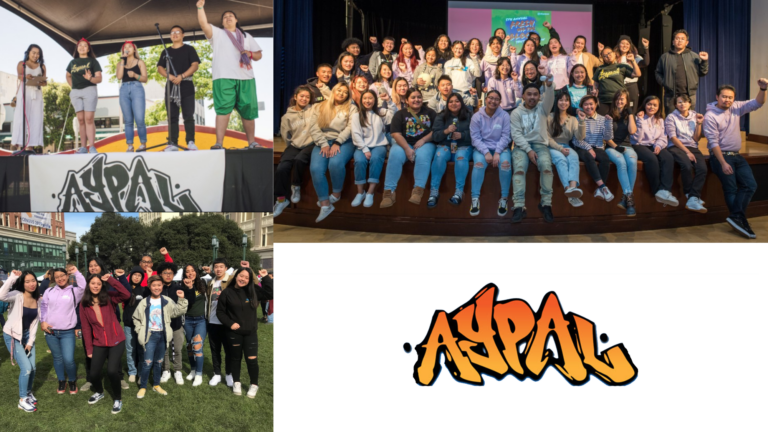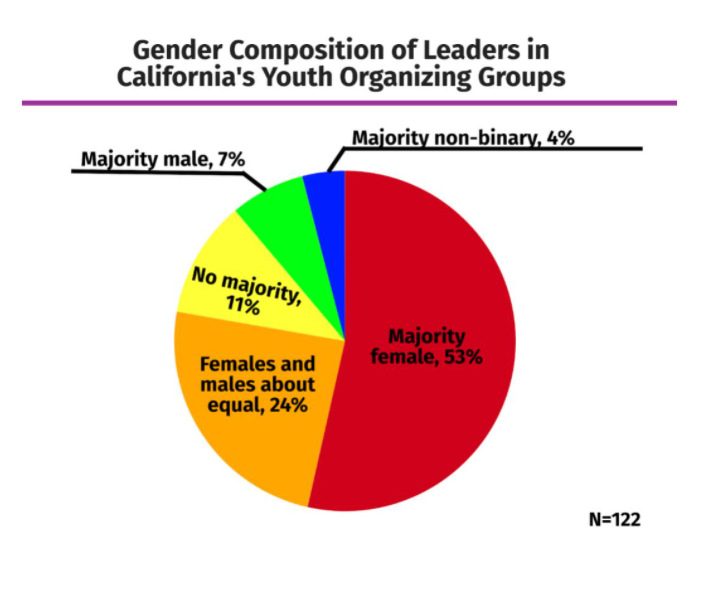
Honoring Women and Non-Binary Youth Leaders in Grassroots Youth Organizing
The unfortunate labeling of the coronavirus as the Chinese virus has resulted in more attacks on the API community. This comes on top of all the attacks on Black people, Latinx communities, those who identify as a woman, those who are trans, and those who are part of the LGBTQ+ community. As a proud Vietnamese-American and Asian-American, I believe we must continue to stand up for our own communities, and leave space to support BLM and other movements.
 Ngan Ly is one of thousands of young people across California who has spoken out in opposition to racial violence and other forms of injustice in their communities and beyond. Ngan is a recent alum of AYPAL (Asian Youth Promoting Advocacy and Leadership). Established in 1998, AYPAL is a non-profit youth organizing group that prepares low-income Asian and Pacific Islander (API) youth, including those of immigrant and refugee parentage, to be active leaders in advocating for policy and social changes addressing the needs of Oakland’s low-income communities. As part of their work, the organization equips its members to educate others about diverse API communities, and speak against violence directed towards their own and other racialized groups.
Ngan Ly is one of thousands of young people across California who has spoken out in opposition to racial violence and other forms of injustice in their communities and beyond. Ngan is a recent alum of AYPAL (Asian Youth Promoting Advocacy and Leadership). Established in 1998, AYPAL is a non-profit youth organizing group that prepares low-income Asian and Pacific Islander (API) youth, including those of immigrant and refugee parentage, to be active leaders in advocating for policy and social changes addressing the needs of Oakland’s low-income communities. As part of their work, the organization equips its members to educate others about diverse API communities, and speak against violence directed towards their own and other racialized groups.
As a member of AYPAL during high school, Ngan acquired a sophisticated understanding of how histories of colonialism, U.S. imperialism, white supremacy, patriarchy, homophobia, and xenophobia have shaped complex patterns of inequality in their hometown of Oakland and beyond. “AYPAL taught us history from an intersectional perspective; it provided us a more in-depth understanding of different groups histories that I never really learned about in school,” Ngan recalled. In addition to this, Ngan has benefited from training in grassroots organizing, obtaining skills in community outreach, policy analysis, and navigating local government decision-making process. These are skills she will carry with her throughout her adult life.
In recognition of Woman’s History Month, Nyereath Nhial and Jennifer Soto (recent UC Santa Cruz graduates) and I have published a new research brief, that pays tribute to the young women and non-binary youth like Ngan who represent important voices in struggles for social justice. The report, Women and Non-Binary Youth are at the Forefront: The Gendered Leadership of Grassroots Youth Organizing Groups, highlights the central role of youth organizing groups such as AYPAL that take an inclusive approach while equipping youth to advance social change. Young women and individuals who do not identify along the gender binary have been well-represented in these groups, and they have also been at the forefront of coordinating mutual aid efforts during the pandemic, fighting for racial justice, and advancing other social justice campaigns.[1]
Our report recognizes the visible and bold leadership of individuals who do not identify as men. Collected in partnership with The California Endowment and the Funders Collaborative on Youth Organizing, our 2019 survey demonstrates the leadership of women. Over half of the 122 California groups surveyed —53%— report having majority-female leaderships. Our observations of campaigns across the state also confirm that girls and young women clearly dominate youth organizing. At the same time, it is noteworthy that 4% of groups (primarily those working on LGBTQ issues) have a majority of non-binary leaders; another 11% indicate that they have no gender majority among their leaders, signaling that non-binary youth make-up a significant proportion.

Undoubtedly, California’s young leaders include those of all genders. However, our research indicates that while women and non-binary youth tend to take on a disproportionate share of the hard work of organizing, they do not always receive public recognition. We, therefore, wish to highlight the inclusive work they have done and will likely continue to do. As part of a generation facing extreme economic inequalities, the looming threats of violence and deportation, layered pandemic-related crisis, and the existential threat of climate change, these young people realize the future is in their hands. In paving a path forward as we recover from the pandemic and its corresponding hardships, we must listen to Ngan and other young people who have been working toward a more equitable and inclusive society.
[1] For further analysis, see Terriquez, Veronica and Ruth Milkman. 2021. “Immigrant and Refugee Youth Organizing in Solidarity with the Movement for Black Lives.” Gender & Society 35(4).
About the author:
Veronica Terriquez, ERI Faculty Affiliate, Stanford Center for Advanced Study in the Behavioral Sciences
Special thanks to Rhummanee Hang and Stanley Pun for providing the AYPAL photos in this blog post.
© 2021. This work is licensed under a CC BY-NC-ND 4.0 license.